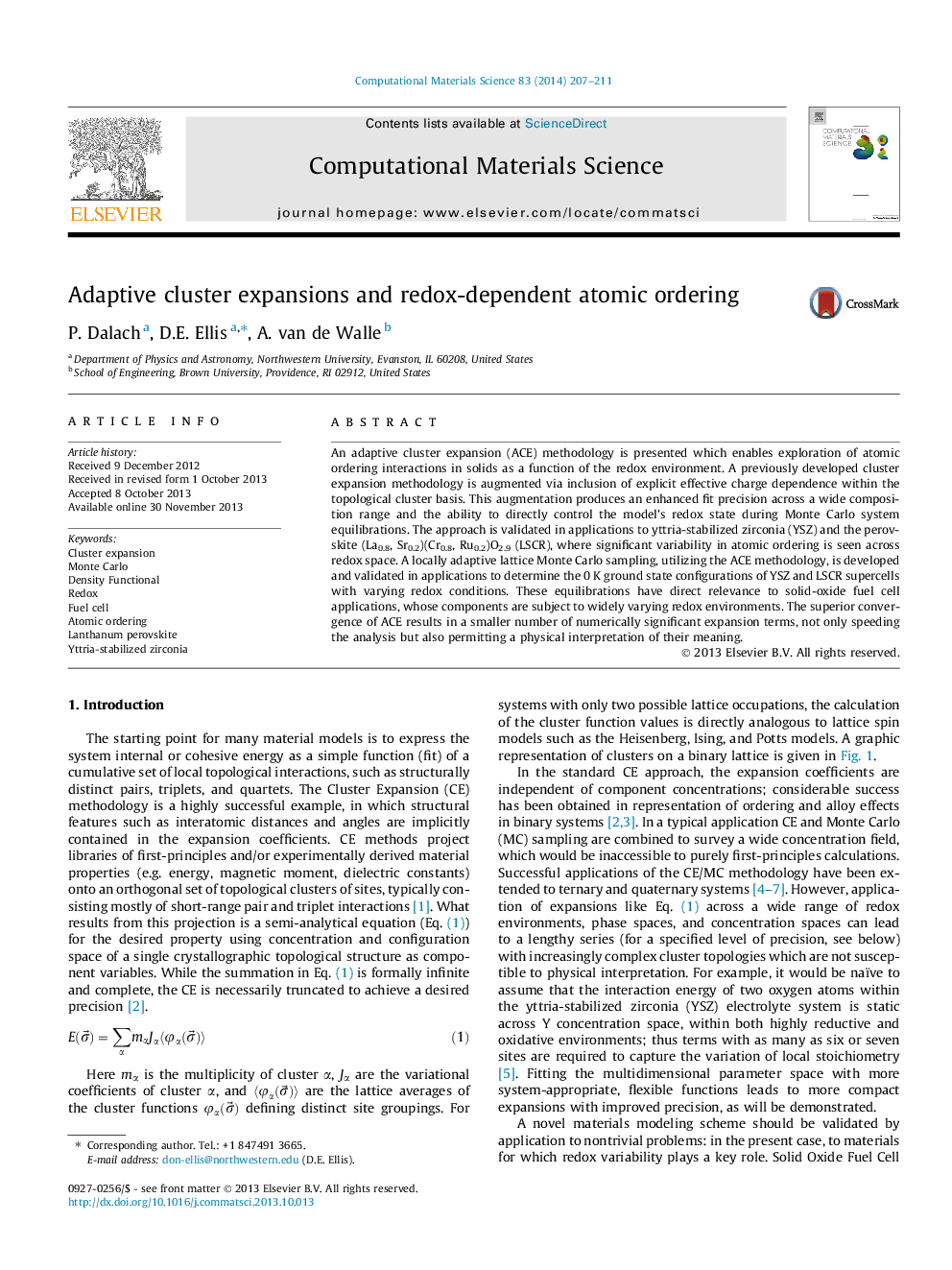| Article ID | Journal | Published Year | Pages | File Type |
|---|---|---|---|---|
| 1561052 | Computational Materials Science | 2014 | 5 Pages |
•Adaptive cluster expansions (ACE) improve prediction of atomic ordering.•ACE allows unprecedented modeling control of the local redox environment.•Compact expansions permit physical interpretations of 2- and 3-body interactions.•The approach is tested for oxide-fuel cell materials YSZ and LSCR.
An adaptive cluster expansion (ACE) methodology is presented which enables exploration of atomic ordering interactions in solids as a function of the redox environment. A previously developed cluster expansion methodology is augmented via inclusion of explicit effective charge dependence within the topological cluster basis. This augmentation produces an enhanced fit precision across a wide composition range and the ability to directly control the model’s redox state during Monte Carlo system equilibrations. The approach is validated in applications to yttria-stabilized zirconia (YSZ) and the perovskite (La0.8, Sr0.2)(Cr0.8, Ru0.2)O2.9 (LSCR), where significant variability in atomic ordering is seen across redox space. A locally adaptive lattice Monte Carlo sampling, utilizing the ACE methodology, is developed and validated in applications to determine the 0 K ground state configurations of YSZ and LSCR supercells with varying redox conditions. These equilibrations have direct relevance to solid-oxide fuel cell applications, whose components are subject to widely varying redox environments. The superior convergence of ACE results in a smaller number of numerically significant expansion terms, not only speeding the analysis but also permitting a physical interpretation of their meaning.
